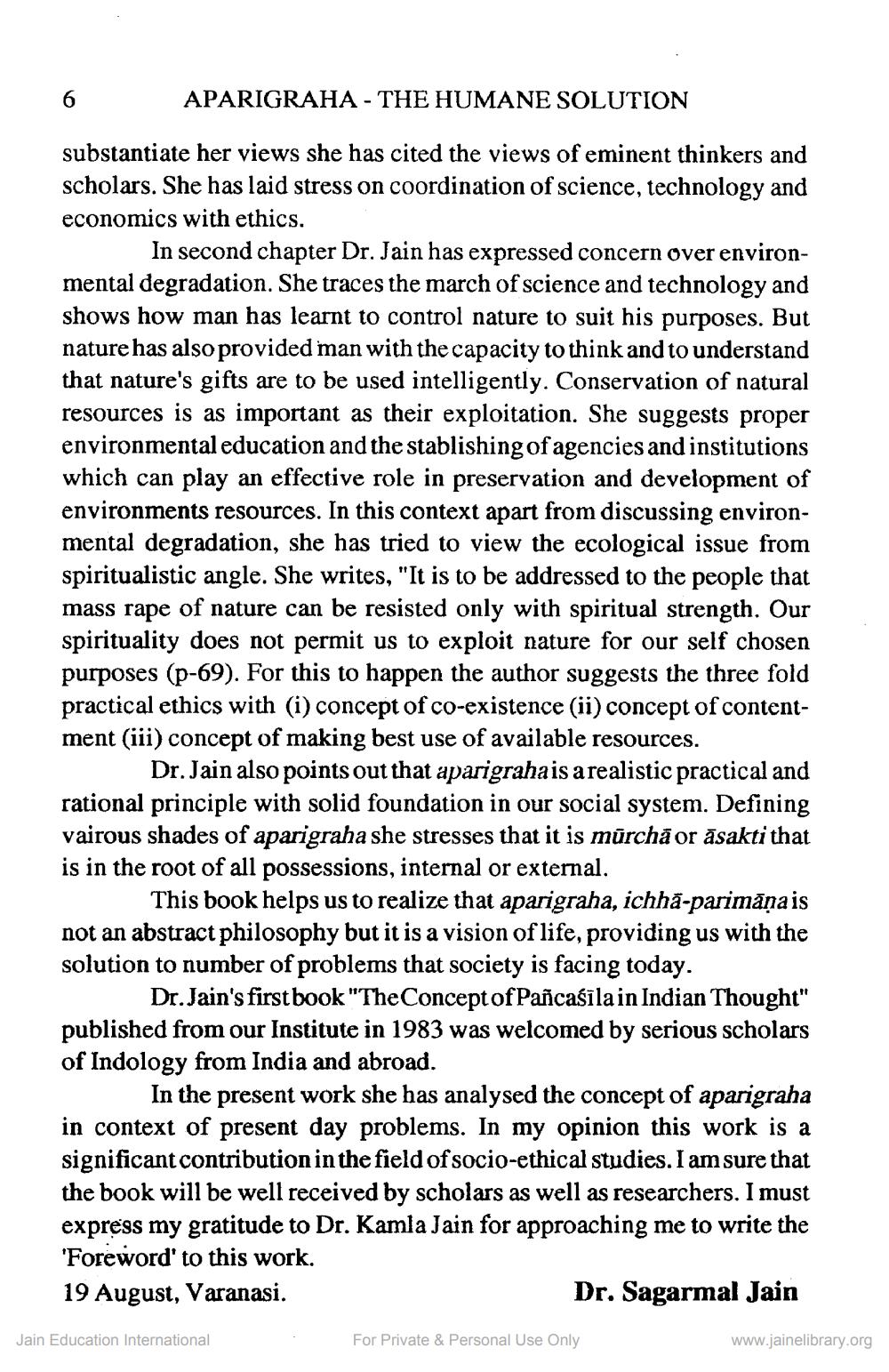________________
6
APARIGRAHA - THE HUMANE SOLUTION
substantiate her views she has cited the views of eminent thinkers and scholars. She has laid stress on coordination of science, technology and economics with ethics.
In second chapter Dr. Jain has expressed concern over environmental degradation. She traces the march of science and technology and shows how man has learnt to control nature to suit his purposes. But nature has also provided man with the capacity to think and to understand that nature's gifts are to be used intelligently. Conservation of natural resources is as important as their exploitation. She suggests proper environmental education and the stablishing of agencies and institutions which can play an effective role in preservation and development of environments resources. In this context apart from discussing environmental degradation, she has tried to view the ecological issue from spiritualistic angle. She writes, "It is to be addressed to the people that mass rape of nature can be resisted only with spiritual strength. Our spirituality does not permit us to exploit nature for our self chosen purposes (p-69). For this to happen the author suggests the three fold practical ethics with (i) concept of co-existence (ii) concept of contentment (iii) concept of making best use of available resources.
Dr. Jain also points out that aparigrahais a realistic practical and rational principle with solid foundation in our social system. Defining vairous shades of aparigraha she stresses that it is mūrchā or āsakti that is in the root of all possessions, internal or external.
This book helps us to realize that aparigraha, ichhā-parimāņais not an abstract philosophy but it is a vision of life, providing us with the solution to number of problems that society is facing today.
Dr. Jain's first book "The Concept of Pancaśīla in Indian Thought" published from our Institute in 1983 was welcomed by serious scholars of Indology from India and abroad.
In the present work she has analysed the concept of aparigraha in context of present day problems. In my opinion this work is a significant contribution in the field of socio-ethical studies. I am sure that the book will be well received by scholars as well as researchers. I must express my gratitude to Dr. Kamla Jain for approaching me to write the 'Foreword' to this work. 19 August, Varanasi.
Dr. Sagarmal Jain
Jain Education International
For Private & Personal Use Only
www.jainelibrary.org




